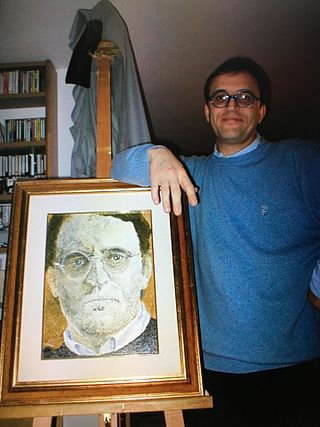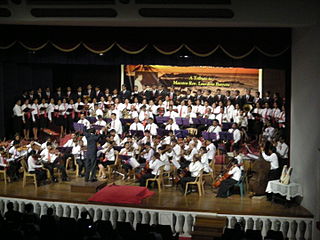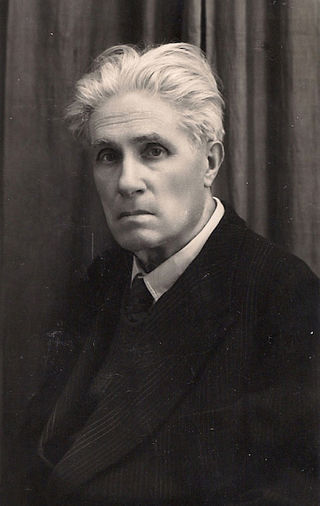De profundis refers to Psalm 130, traditionally known as the De profundis from its opening words in Latin.

Ferenc Farkas was a Hungarian composer.

Knut Nystedt was a Norwegian orchestral and choral composer.
František Xaver Brixi was a Czech classical composer of the 18th century. His first name is sometimes given by reference works in its Germanic form, Franz.

Riccardo Zandonai was an Italian composer and conductor.

Carlo Pedini is an Italian classical composer.

Missa brevis usually refers to a Mass composition that is short because part of the text of the Mass ordinary that is usually set to music in a full Mass is left out, or because its execution time is relatively short.
Egil Hovland was a Norwegian composer.

Regina Derieva was an Odessa-born Russian poet and writer who published around thirty books of poetry, essays, and prose. From July 1999 until her death she lived in Sweden.
Hervé Niquet is a French conductor, harpsichordist, tenor, and the director of Le Concert Spirituel, specializing in French Baroque music.

Alberto Zedda was an Italian conductor and musicologist whose specialty was the 19th-century Italian repertoire.

Marcello Abbado was an Italian pianist, composer, conductor and academic teacher. His compositions include several orchestral works, two ballets, numerous pieces for solo piano, and chamber music. As a pianist, he played in major concert halls of the world. He taught composition at several conservatories, ultimately at the Giuseppe Verdi Conservatory. In 1989 he was awarded the gold medal for Meritorious Culture and Art by the Government of Italy.

The Conservatorio Statale di Musica "Gioachino Rossini" is a music conservatory in Pesaro, Italy. Founded in 1869 with a legacy from the composer Gioachino Rossini, the conservatory officially opened in 1882 with 67 students and was then known as the Liceo musicale Rossini. By 2010 it had an enrollment of approximately 850 students studying for higher diplomas in singing, instrumental performance, composition, musicology, choral conducting, jazz or electronic music. The conservatory also trains music teachers for secondary schools and holds regular master classes. Its seat is the 18th century Palazzo Olivieri–Machirelli on the Piazza Oliveri in Pesaro. Amongst its past Directors are the composers Carlo Pedrotti, Pietro Mascagni, Riccardo Zandonai and Franco Alfano. Mascagni's opera Zanetto had its world premiere at the conservatory in 1896.

Stefano Vagnini is an Italian musician, composer, researcher, poet and Modular Art theorist.

The Santa Cecilia Choir is a polyphonic male choir composed of seminarians of the Rachol Seminary of the Catholic Archdiocese of Goa and Daman in Goa, India.
Nazario Carlo Bellandi was an Italian music composer, organist, pianist, and harpsichordist.

Romuald Twardowski was a Polish composer, pianist, organist and academic teacher who studied in Vilnius, Warsaw and Paris. In a style described as "developed neoclassicism", he composed operas, ballets, instrumental music and vocal works, especially sacred music for both Catholic use and the Orthodox Church. He achieved international prizes for his compositions, and many works were recorded in anthologies, including the Violin Concerto, chamber music, and sacred and secular choral music such as the Liturgy of St. John Chrysostom. He was professor at the State Academy of Music in Warsaw from 1972 to 2008.
Matteo Messori is an Italian keyboard player, conductor, musicologist, composer and teacher. He performs on period instruments including the harpsichord, pipe organ, clavichord and pedal piano. He founded the early music ensemble Cappella Augustana.

Arturo di Giuseppe Melocchi was an Italian baritone and voice teacher who is best known for having been the teacher of dramatic tenor Mario Del Monaco and his older brother Marcello Del Monaco. In addition, his method influenced the voice and technical development of tenor Franco Corelli.
Greta De Reyghere is a Belgian soprano who specializes in early music and Baroque music in historically informed performance but also performs a variety of other classical music in concert. She is a teacher at the Royal Conservatory of Liège.













